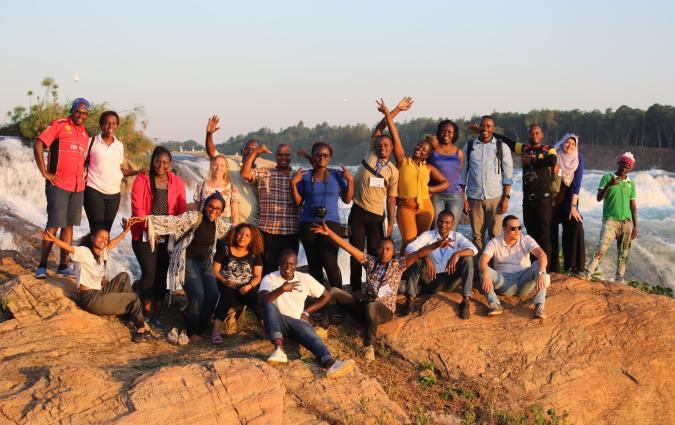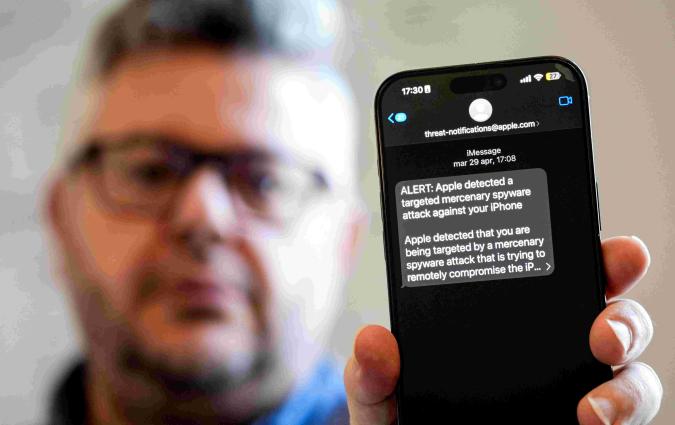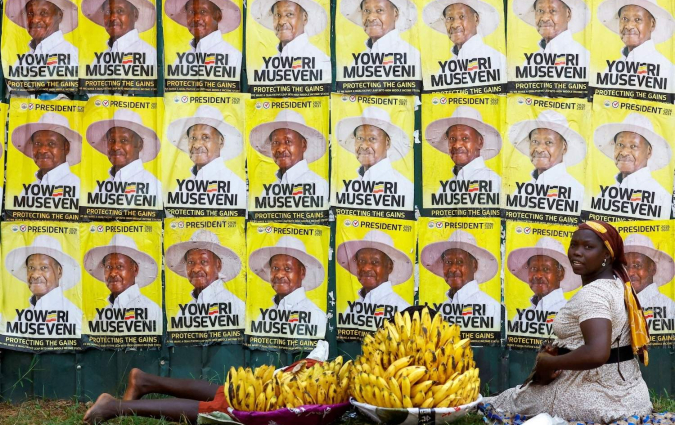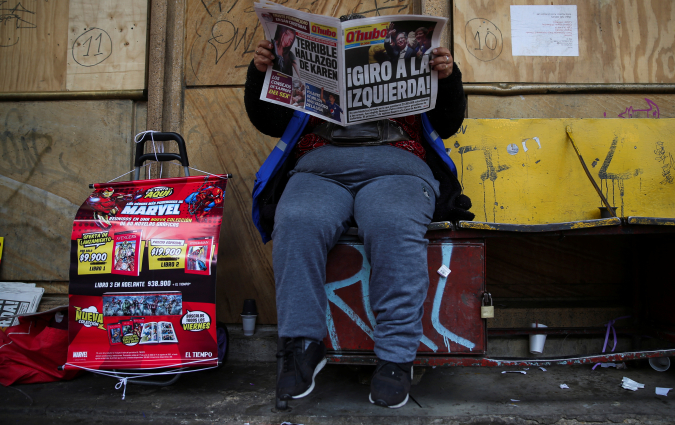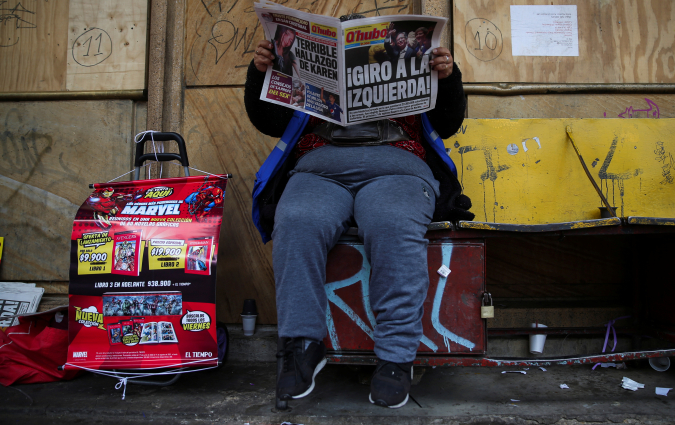How this freelancer broke a major scandal on surrogacy and won a top award in Kenya

Kenyan journalist Naipanoi Lepapa.
Naipanoi Lepapa surprised many when she was declared Journalist of the Year in Kenya’s Annual Journalists Excellence Awards by the Media Council of Kenya. Previous winners include talented journalists such as John-Allan Namu, Dennis Okari, Sharon Momanyi, Waihiga Mwaura.
Lepapa is a freelance investigative journalist whose work has been published in The Elephant, Finance Uncovered, Africa Uncensored and other news organisations.
Her investigation ‘Hard Labour: The Surrogacy Industry in Kenya’ uncovered how the surrogacy industry is operated in a country where there is no legal framework in place. She highlighted how agencies registered abroad have been recruiting vulnerable women from low-income areas and marketing them as surrogates to international clients. She also uncovered a wide range of illegal activities including how the women are coerced, exploited and intimidated.
Lepapa’s investigation inspired the project ‘The Baby Broker Project: Inside the world’s leading low-cost surrogacy agency’ on a surrogacy tourism agency across four continents that match desperate would-be parents with surrogates from poor economic backgrounds.
I recently spoke to Lepapa about her experience doing her investigation, the threats she faced and the challenges of being a freelance journalist in Kenya. Our conversation has been edited for brevity and clarity.
Q. How did you get into investigative journalism?
A. It was in 2016 when I was looking into a story on surrogacy and these reports that say that infertility in Kenya was high. I wanted to do a story on it as I am so passionate about gender issues. I wanted to do a story about that and just highlight surrogacy as an opportunity for many people or couples who can't have children the natural way.
At the time I was an intern at a weekly newspaper. I started my research and found several foreign websites dealing with surrogacy in Kenya. They all had foreign telephone numbers that were unreachable, and they could only be contacted through emails. This was very weird for me. I started looking at the agencies and concluded that there must be a scandal behind it. But at the time I did not think of doing an investigative piece because I didn't know how to do that. So I left it at that.
Q. How did it turn out to be an investigative piece?
A. I picked up the research again in 2018. I didn’t have the skills or the knowledge to go deeper. But I desired to do this story because I found it strange that there were numerous foreign agencies advertising surrogacy online. I wanted to find out who these people were because Kenya did not have any laws on surrogacy.
At the time I had gone into freelancing. Not only did I lack the skills to carry out that investigation, but I also lacked funding for it. But I was passionate about the idea and I started looking for opportunities online. Fortunately, I found a few training tools from the Journalismfund Europe. There was also a call for investigative journalists to apply for training on money trail by nonprofit Finance Uncovered. I decided to apply but I knew my chances were very slim. They were looking for investigative journalists and I had no prior experience.
I explained the idea in my application. I said I believed some Kenyan women were being exploited by these agencies. I was surprised that I got the opportunity. Their training enabled me to carry out the investigation. That is how I turned the idea into an investigative project.
Q. How was the experience and what are some of the challenges you faced while working on such a complex story?
A. This was the most challenging story I’ve ever worked on. I would get a breakthrough and then, a few hours or days later, I would be back to zero.
I would get a source and agree to meet. But then something would happen and they would cancel or wouldn’t show up. I was at the point of giving up on several occasions. The individuals I was investigating were powerful. They threatened sources. They also threatened me. I remember when I was calling people so they could have their right to reply, one of the individuals in that business pretended he was going to give me an interview but it turned out to be a trap.
The other major challenge I faced was getting sources and information. I tried the Civil Registration office and everywhere I thought they might be involved in surrogacy or registration of children, but none was forthcoming.
Of course, before publishing, there is a lot of editing, a need for fact-checking, a need for a lawyer to go through the work. As a freelancer, I didn't have that. Luckily Finance Uncovered assisted me on those. If I didn't have that, I don't think it would have been possible for me to produce such a story and for me to feel safe when the story was out.
Even before the story came out, I was threatened with legal action and as the story came out, we were sent a defamation letter. This was the first time I had received something like this and I was very worried. I did not know what to do, but John Githongo from The Elephant called and told me that I had done my work and I should leave the matter to them, and they sorted it out.
Q. How is it doing such an important story as a freelance journalist?
A. As a freelancer, you need to have an editor or at least people you trust who can support you from the beginning to the end. I was surrounded by people who cared about my mental health and my physical well-being. They were always alert, wanting to know what was going on. So having those people providing you with editing, with fact-checking and with lawyers was very important. As a freelancer, most of the time you're going to be alone, and you need such networks.
Q. Most of your work is published by digital outlets. Is there any particular reason for that?
A. People ask me why I choose to work with publications such as [Kenyan digital magazine] The Elephant, for instance. I have a story that is coming out soon and someone I interviewed asked me why I was not taking such a good story to the mainstream media. It's hard for people to understand why. But it is because I know I’ll be protected. As long as I have the evidence, they will not leave me there to burn. So as a freelance journalist, I want to work with someone who I know will have my back completely, no matter what happens.
I also know they won’t censor whatever I expose. I am aware some editors will kill a story or edit out important information because it exposes a person or an organisation they don't want to expose. So I would rather work with organisations such as Africa Uncensored and The Elephant because I know they are not going to take something out of my work because they're afraid of advertisers or afraid of some powerful people. They want the truth to be out there.
Q. What's your general take on digital media?
A. Digital media is very powerful because everybody is connected. Everybody can access this information, even in the most remote of areas, as long as they can connect to the internet. This is fantastic because people can like and share your posts. The most beautiful thing for me about digital media is that it allows a fusion of text, audio, video and photographs, and the audience can also give you feedback in real-time.
For freelance journalists, the internet has created an opportunity, with alternative outlets where you can have your investigations published. So if you have an important story and the mainstream media can’t publish it, you can publish it on a blog, on social media or on independent media that are looking for well-done stories. Freelance journalists should take advantage of that.
Q. What are some of the highlights of working as a journalist?
A. My biggest highlight has been getting that story published. As a freelance journalist, I almost gave up the idea and now I see people discussing it not only in Kenya but across the globe. It’s a story that I thought was impossible to publish. So it feels nice to see surrogacy being discussed in different forums as a result of that story. This is a conversation we need to have as a nation. Another highlight is seeing journalists from other outlets and countries [The Guardian in the UK and Animal Político in Mexico, for example] investigating the same issue and finding connections to what I had highlighted.
Q. How important is it to have a security plan when working on such a story?
A. I have been lucky to find an organisation that has mentored me in terms of security. So I never start a story if I do not have a risk assessment plan and a security plan. Before I go out to the field, I have to research every risk I will be exposed to while doing the story. It could be physical access, being censored, harassed, kidnapped, arrested or even killed. I list all those risks and the possible solution for each risk.
For instance, if someone tries to censor you or tries to delay important information, what are you going to do? Or if you face the risk of kidnapping, what do you do? For a freelance journalist, it is very difficult because you work alone most of the time. But I have learned that's not the way to go especially when you face such kind of risks. You have to work with individuals or organisations. I never go to an interview alone. I have two or three people with me, sometimes even four. I always make sure I'll be safe.
Q. How would you describe the state of freelance journalism in Kenya?
A. First, I think people don't take it seriously. When you reach out to a source or an expert, the first question they often ask is which media you work with. When you say you are a freelance journalist, some people will refuse to speak to you because they are used to mainstream reporters. They also want to be seen in the mainstream media, so it's really hard at first.
It is also hard getting editors whom you can pitch. Sometimes you pitch to an editor who says no to your pitch, but you see the same story done by their publication. What I've tried is to work with people I can return to. Investigations are hard and expensive, and they take a lot of time. You need a lot of funding and most of the independent media houses, the ones you might want to work with, don’t have that kind of money. What I do (and it has been working so far) is to get a story idea, pitch it to an editor and tell them it will be funded by this organisation. That's the only way I can properly work without thinking of bills and without thinking I'm going to be in trouble. Some of these grants are specifically meant for legal use. So when I pitch to editors and they give me intent letters, I then approach a funder and present the idea.
Q, Any lessons you've learned along the way that may be useful for anyone who's getting into freelance journalism?
A. The first thing is pitching. Practice pitching until you get good at it. Of course, you cannot be perfect in the first instance. But try as much as possible to have a really good pitch before presenting it to any editor or funder.
Secondly, have as much background material as possible and research as much as you can. That's the only way to get your pitch approved. Before approaching anyone, just prove at least part of the story, so it's easier for them to accept the idea and to trust you.
Thirdly, you talk to these sources with horror stories and people sometimes think that you have the solution to their problems. One therapist told me that it’s like they offload their dark files to you.The more it gets dark for you, the more it's so easy for you to fall into a hole. Your whole life can fall apart. If you don't take care of your mental well-being, it's so easy to find yourself there, especially when you're chasing a story and it is so easy for you to forget to take care of yourself mentally and physically.
Q. How do you ensure that you don’t find yourself in that dark hole?
A. I work out a lot and I have also tried to stay away from stress. But I have come to accept the fact that I talk to people who have been hurt in ways that you can’t even explain, and they will always transfer that back to you. So I think it is important to talk to people close to you or to a therapist. In Kenya we don't have access to therapists, especially as freelancers. But it's very important and should be offered as part of the benefits of our work because we see a lot and we hear a lot of things that shouldn't even be allowed to stay in our heads.
You see journalists take to alcohol and engage in funny behaviours and wonder why. It is because of the things that they have been exposed to and they didn't know how to deal with them.
In every email we send you'll find original reporting, evidence-based insights, online seminars and readings curated from 100s of sources - all in 5 minutes.
- Twice a week
- More than 20,000 people receive it
- Unsubscribe any time



